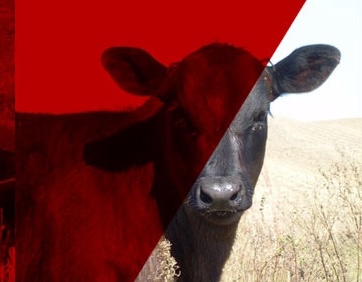Practices, conditions, and prices change. Therefore, enterprise budgets must be updated at least annually. Several of the geographically representative Nebraska cow herd budgets produced by the University of Nebraska-Lincoln were updated over the past several months. Primarily, feed and cattle prices were updated, with three additional budgets completed. A blank cow herd system budget template and ten Nebraska cow herd budget examples are provided on the Center for Agricultural Profitability’s website, at cap.unl.edu/cattlebudgets.
The cow herd budgets represent various management practices, such as growing replacement heifers or purchasing bred cows, selling calves at weaning, backgrounding, or conditioning calves to add extra weight before selling. These budgets are prepared to serve as enterprise budget guides for producers and ag managers to utilize in creating their own.
The background stories are provided for each of the budgets to assist producers in understanding more about the values in the budgets and as a guide in determining their own cost of production and cow costs. Producers can modify the example budgets using the Excel template to estimate their projected economic costs and net returns for a production season.
The updated cow-calf budgets include a 300- and 600-cow herd representing central Nebraska, two northeast Nebraska cow herd budgets, two from the Nebraska panhandle area, two representing typical herd sizes in southeast Nebraska, one 150-cow herd showing production practices typical for south-central, and another 300-cow herd from southwest Nebraska.
With a wide range of production and management practices throughout Nebraska for cow-calf enterprises reflected in the representative budgets, total annual economic costs per cow range from $1,125 for the south-central Nebraska 150-head cow herd to $1,476 per cow for a 200-head cow herd in northeast Nebraska (Table 1). Annual breeding costs calculated and shown in the “Breeding Herd Cash Budget” worksheet of the budget file varied considerably depending upon whether replacement heifers were assumed to be purchased or raised.
Updated prices as of mid-year 2021 were included in the budgets. These figures can vary widely from time to time. It is best for those using the budgets to enter current prices for the cattle, feed, and other inputs to have a better understanding of their current cost and return position.
In the representative budgets, pasture and corn stalk rent expenses are included as cash costs in each budget. Cattle producers often own at least a portion of their hay and pasture ground and raise their own crops for feed and their cattle utilize their crop residue, e.g., corn stalks. Raised feed, hay, and owned pasture ground could be treated as separate enterprises from the cow herd. Therefore, a fair market or opportunity value is placed on them in the cow-calf budgets so we can more clearly understand the cattle enterprise costs.
Accurate production, feed, and financial records are foundational to the budgeting process. With the livestock budget template, cost and returns for the whole cow-calf operation can be analyzed. In addition to the breeding herd enterprise, the template contains budget sheets to analyze calves that are retained past weaning. These include the enterprise of wintering or conditioning calves, grazing stockers, and feedlot placements.
| Cow-Calf Budgets | Southeast 50 Cow Herd | Northeast 200 Cow Herd | South Central 150 Cow Herd | Central 300 Cow Herd | Panhandle 400 Cow Herd |
|---|---|---|---|---|---|
| Per Cow | Per Cow | Per Cow | Per Cow | Per Cow | |
| Total Revenue | $996 | $1,090 | $932 | $1,065 | $865 |
| Feed Costs* | $594 | $879 | $655 | $772 | $872 |
| Other Variable Costs | $111 | $147 | $105 | $103 | 249** |
| Fixed & Overhead Cash Costs | $100 | $40 | $45 | $29 | $25 |
| Total Cash Costs | $1,010 | $1,320 | $948 | $1,180 | $1,176 |
| Net Cash Income | -$14 | -$230 | -$16 | -$114 | -$310 |
| Non-Cash Costs | $155 | $157 | $164 | $108 | $82 |
| Total Costs | $1,164 | $1,476 | $1,125 | $1,288 | $1,258 |
| Net Income | -$168 | -$386 | -$180 | -$222 | -$392 |
** Includes higher labor costs per animal.
Topics covered:
Budgets & cost of production, Marketing, budgets & management

